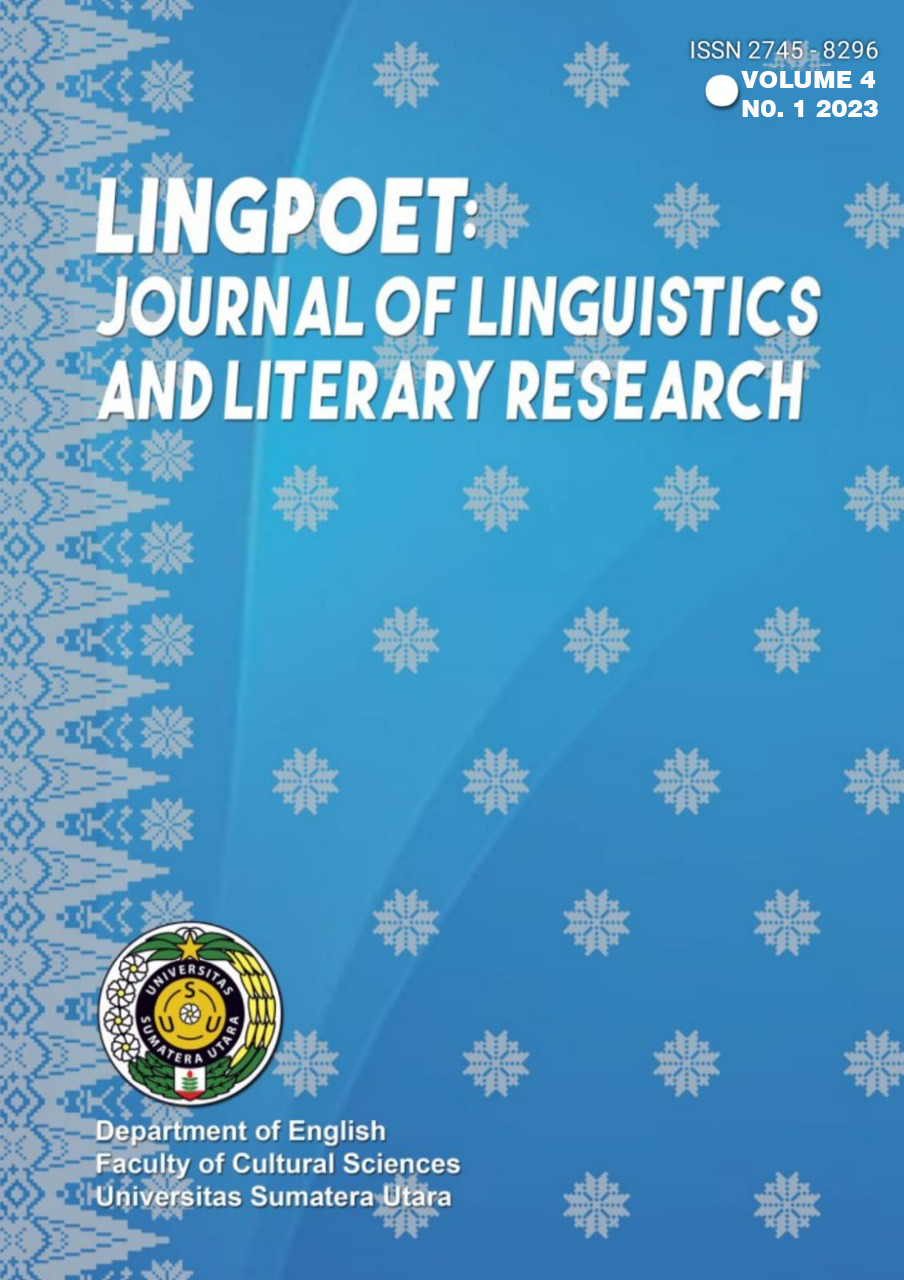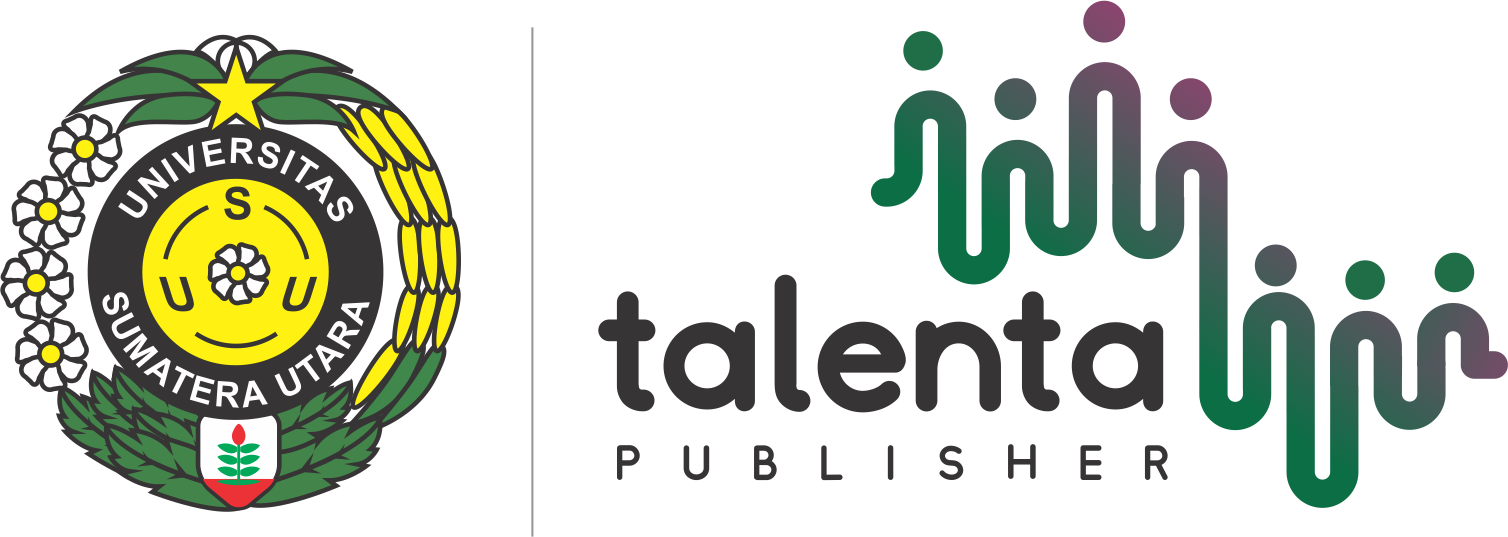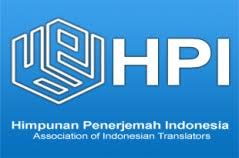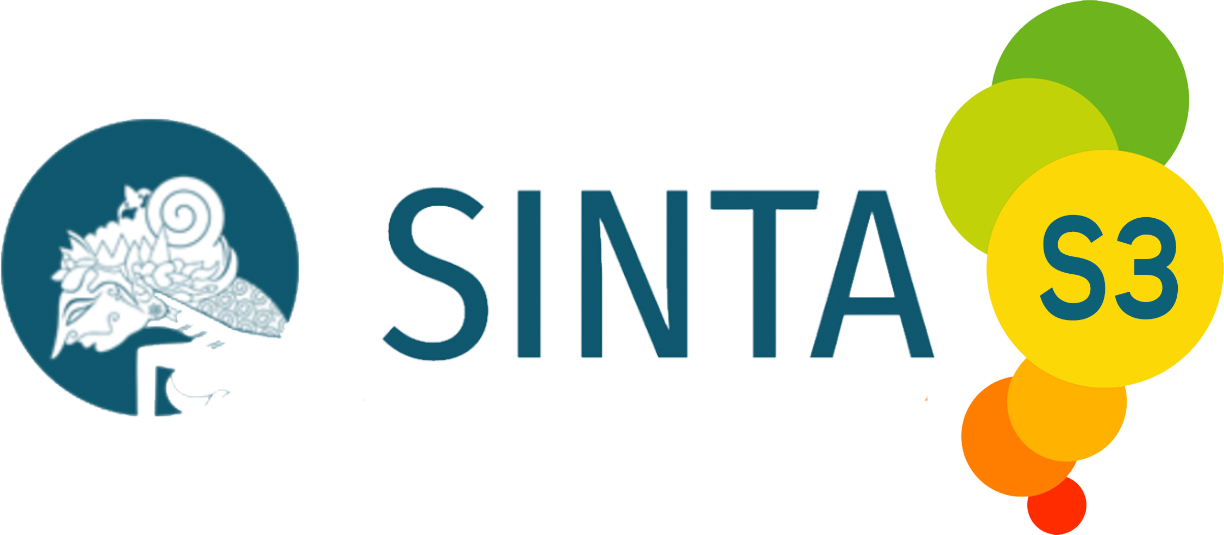The English Teacher Language Competency Enhancement: A Discussion of Models and Strategies
DOI:
https://doi.org/10.32734/lingpoet.v4i1.10544Keywords:
Language skill, Model, StrategyAbstract
The purpose of this paper is to describe the numerous methods and techniques employed to improve the language proficiency of English teachers. English teachers must be able to comprehend and communicate effectively in the language because it is utilized in a variety of situations. The topic of discussion will be the many methods employed to improve the language proficiency of English teachers, and their efficacy in doing so will be assessed. The paper will also look at English teachers' difficulties while attempting to become more fluent in another language. In the end, this essay will present a thorough analysis of the models and techniques employed to help English teachers develop their language proficiency and suggestions for enhancing their language abilities.
Downloads
References
I. Lisadwati, U. Nisa, E. Fauziah, and Ambhara., “KECEMASAN GURU-GURU BAHASA INGGRIS DALAM MENGAJAR MATA PELAJARAN BAHASA INGGRIS DI SMA,†Abdimas Siliwangi, vol. 5, no. 1, pp. 191–200, 2022.
J. Thadphoothon, “English Language Competence of Thai School Teachers,†Econ. Manag. Innov. ICEMI, vol. 1, no. 1, pp. 154–156, 2017, doi: 10.26480/icemi.01.2017.154.156.
T. Murphey and T. Sasaki, “Japanese English teachers’ increasing use of English,†Lang. Teach., vol. 22, no. 10, pp. 21–24, 30, 1998.
E. K. Horwitz, “Even Teachers Get the Blues: Recognizing and Alleviating Language Teachers’ Feelings of Foreign Language Anxiety,†Foreign Lang. Ann., vol. 29, no. 3, 1996, doi: https://doi.org/10.1111/j.1944-9720.1996.tb01248.x.
O. E. Novita and F. N. Yusuf, “Kemahiran Bahasa Guru Bahasa Inggris dan Efektivitas Mengajar,†J. Penelit. Pendidik., vol. 19, no. 3, pp. 383–394, 2019, doi: 10.17509/jpp.v19i3.22332.
J. Daly, Understanding Communication Apprehension: An Introduction for Language Educators, In Horwitz, E. K. & Young, D. J. New Jersey: Prentice Hall, 1991.
M. Tanveer, “Investigation of the factors that cause language anxiety for ESL/EFL learners in learning speaking skills and the influence it casts on communication in the target language,†University of Glasglow UK, 2008. [Online]. Available: http://dx.doi.org/10.13140/RG.2.1.1995.1129
I. Katane, “Teacher Competence and Further Education as Priorities for Sustainable Development of Rural School in Latvia,†J. Teach. Educ. Train., 2006.
D. L. Apriliyanti, “Enhancing teachers’ competencies through rofessional development program: Challenges and benefactions,†Acuity J. Engl. Lang. Pedagogy Lit. Cult., vol. 5, no. 1, pp. 28–38, 2020.
D. Schneckenberg and J. Wildt, Understanding the Concept of e-Competence for Academic Staff. 2010.
N. Kuhlman and B. Kneževic, EFL Professional Teaching Standards. Victoria Australia: TESOL International Association, 2017.
J. W. Creswell, RESEARCH DESIGN: Qualitative, Quantitative, and Mixed Methods Aproaches, Fourth Edi, 4th ed. SAGE Publication, 2014.
M. B. Miles, A. M. Huberman, and J. Saldana, Qualitative Data Analysis: A Methods Sourcebook. 1984.
Z. Rohmah, “Enhancing English teachers’ professional development: Portraying a mentoring program,†TEFLIN J. - Publ. Teach. Learn. Engl., vol. 29, no. 1, pp. 90–107, 2018, doi: http://dx.doi.org/10.15639/teflinjournal.v29i1/90-107.
M. Anugerahwati and A. Saukah, “Professional competence of English teachers in Indonesia: A profile of exemplary teachers,†Indones. JELT Indones. J. Engl. Lang. Teach., vol. 6, no. 1, pp. 47–59, 2010.
L. M. Desimone, “Improving Impact Studies of Teachers’ Professional Development: Toward Better Conceptualizations and Measures,†AERA, vol. 38, no. 3, 2009, doi: https://doi.org/10.3102/0013189X08331140.
H. Borko, “Professional Development and Teacher Learning: Mapping the Terrain,†AERA, vol. 33, no. 8, 2004, [Online]. Available: http://www.aera.net/uploadedFiles/Journals_and_Publications/Journals/Educational_Researcher/
S. Dogan and N. Yurtseven, “Professional Learning as a Predictor for Instructional Quality: A Secondary Analysis of TALIS,†Sch. Eff. Sch. Improv., vol. 29, no. 1, pp. 64–90, 2018.
E. D. Hochberg and L. M. Desimone, “Professional development in the accountability context: Building capacity to achieve standards,†Educ. Psychol., vol. 45, no. 2, pp. 89–106, 2010, doi: https://psycnet.apa.org/doi/10.1080/00461521003703052.
K. McChesney, “Investigating Teachers’ Experiences of Professional Development within a Major Education Reform in the Emirate of Abu Dhabi,†Abu Dhabi, 2007.
A. C. Porter, M. Garet, L. M. Desimone, K. Suk Yoon, and B. Birman, Does professional development change teachers’ instruction? Results from a three-year study of the effects of Eisenhower and other professional development on teaching practice. Washington DC: U.S. Department of Education, 2000.
Downloads
Published
How to Cite
Issue
Section
License
Copyright (c) 2023 LingPoet: Journal of Linguistics and Literary Research

This work is licensed under a Creative Commons Attribution-ShareAlike 4.0 International License.













